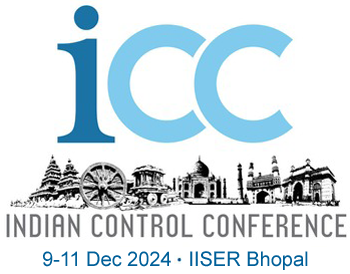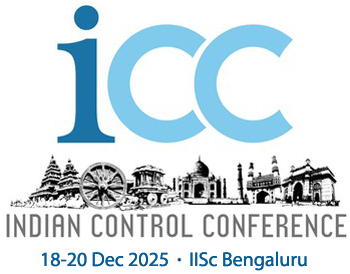“Introduction to Model Predictive Control (MPC) with MATLAB and Simulink” by Pranav Lad and Dhruv Chandel, Mathworks (December 9, 2024)
Model Predictive Control (MPC) is an advanced control technique that has been used for process control since the 1980s. With the increasing computing power of microprocessors as well as high-speed optimization algorithms, the use of MPC has spread to many real-time embedded applications, often used in automotive, aerospace, industrial automation, and other industries. MPC can handle multi-input multi-output (MIMO) systems with coupled input-output channels as well as constraints on inputs, outputs, and states, which are challenging to handle with classical control methods. This workshop delves into the principles and applications of MPC, providing participants with a comprehensive understanding of the concepts and practical implementations in the simulation environment.
During the workshop, we will discuss what is MPC, how it works, various categories of MPC, and their implementation. Leveraging the powerful computational tools of MATLAB and Simulink, participants will gain hands-on experience in designing and simulating MPC controllers for linear and nonlinear applications. Extensive libraries of MATLAB and Simulink’s dynamic simulation environment will be utilized to demonstrate real-world applications and facilitate an intuitive understanding of complex control scenarios. By the end of this workshop, participants will be equipped with the skills to implement MPC in various engineering contexts, enhancing their ability to optimize performance and efficiency in control systems.
“Leveraging Neural Interfaces to Enhance Control of Advanced Machines using Delsys Technology” by Nicholas Ducey and Bhawna Shiwani, Delsys (December 9, 2024)
As advanced machines become more commonplace in our daily lives, it is becoming increasingly important for these machines to interact seamlessly with the humans that leverage their abilities. Delsys provides cutting-edge EMG solutions that enable engineers to design myoelectrically-controlled Human-Machine Interfaces, simplifying the complexity of human movement into intuitive control commands.
This session will highlight the latest advancements offered by Delsys, including API integration and dynamic multi-channel EMG detection, which researchers can leverage to enhance their Human-Machine Interfaces.
Mr. Nicholas Ducey will introduce Delsys, provide an overview of Delsys’ history in HMI, review the latest advanced Delsys tools, and discuss the future of EMG in HMI.
Ms. Bhawna Shiwani will present on her research, focusing on leveraging real-time neural interfaces and dynamic motor unit identification for enhanced control of upper extremity prosthetics.
“Stability-Theory Perspective into Optimization: Design and Analysis of Algorithms” by Mayank Baranwal, TCS Research (December 10, 2024)
Optimization algorithms are the driving force behind many machine learning formulations, and recent progress in this field has been greatly aided by a better understanding of these algorithms and their implementation for specific machine-learning problems. However, the field lacks a generalized tool to design and analyze optimization algorithms, making it non-intuitive for practitioners to develop their accelerated variants.
The study of gradient flow and its connection to dynamical systems has a long history in mathematics. This talk aims to further explore this relationship from a continuous-time perspective. In particular, we introduce a generalized framework for designing accelerated optimization algorithms based on recent advances in the fixed-time stability theory of continuous-time dynamical systems. This framework allows for the strongest possible convergence guarantees and easily extends to a subclass of non-convex functions. This talk is part of a larger effort to connect the fields of dynamical systems and optimization and to advance our understanding of the underlying mathematical principles and their applications.
“Control Challenges in SDVs: Zonal Architecture, SOFAEE, and AI/ML Integration” by Muralikrishnan Elumalai, Edutech (December 10, 2024)
Software-defined vehicles (SDVs) are redefining automotive technology. They integrate modular architectures like SOFAEE and Autoware with emerging zonal designs to enhance scalability and control. These architectures optimize resource utilization and decentralize subsystems, addressing fault tolerance and real-time processing challenges.
The integration of AI/ML introduces new dimensions for perception, decision-making, and control, but also demands robust strategies for real-time optimization and cybersecurity. With SDVs increasingly connected, safeguarding against cyber threats while ensuring functional safety has become critical.
This presentation explores control strategies, system-level challenges, and collaborative solutions necessary for advancing SDV deployment. It highlights the importance of adaptive control frameworks, open architectures, and standardized protocols to address these complexities.
By bridging control theory with emerging technologies, this discussion provides actionable insights for researchers and practitioners to accelerate innovation in autonomous mobility.

